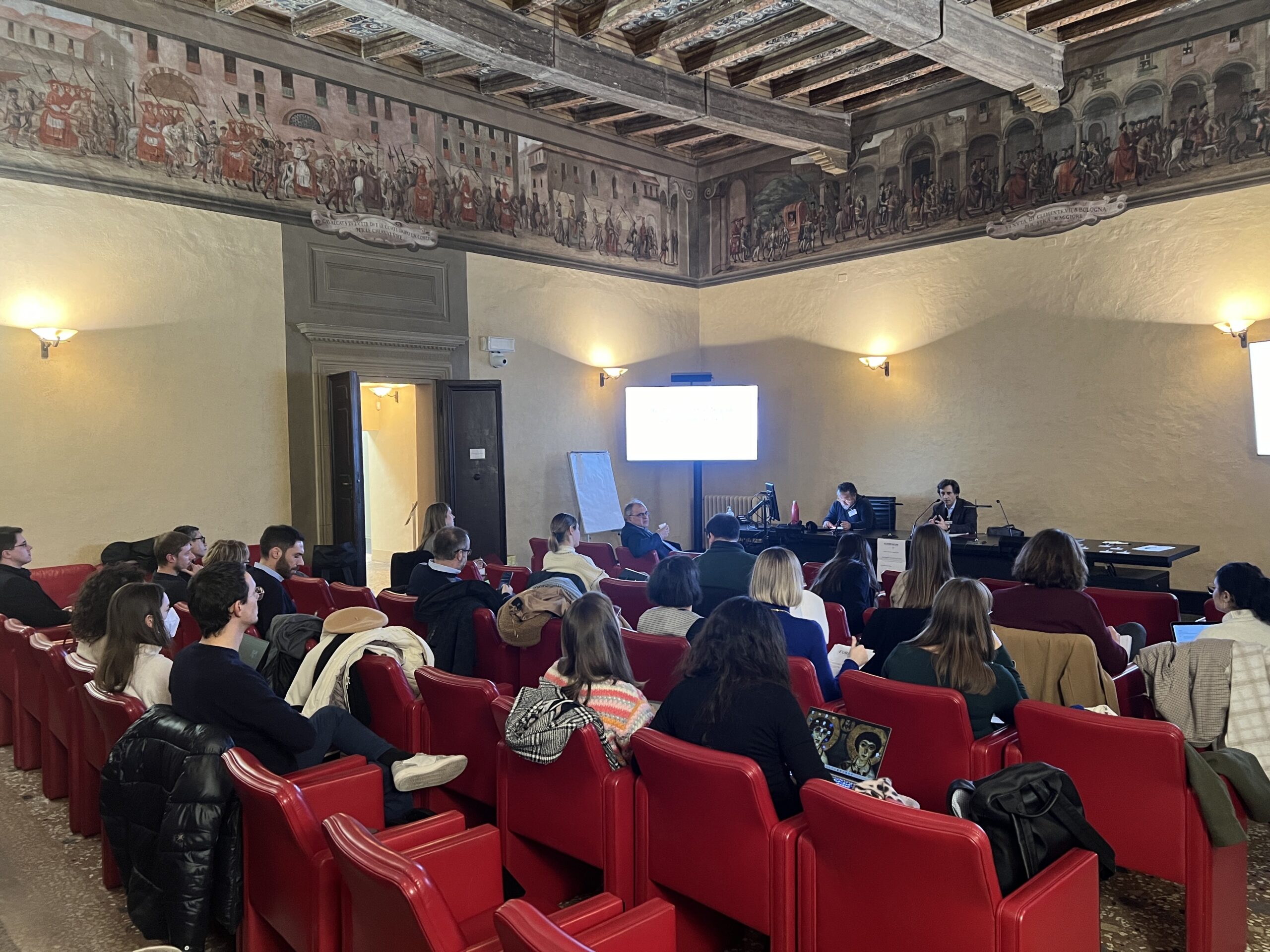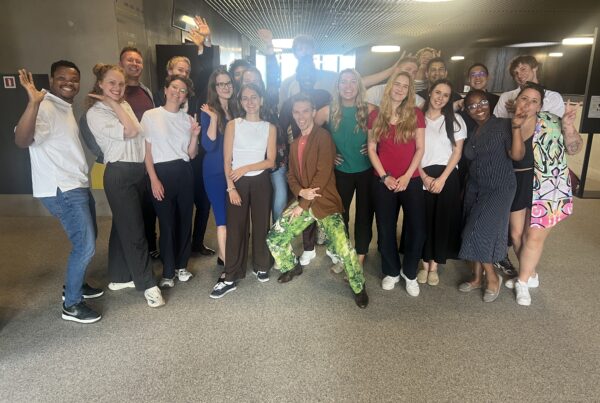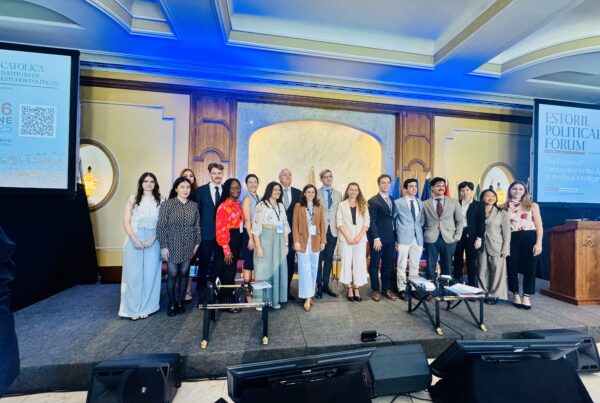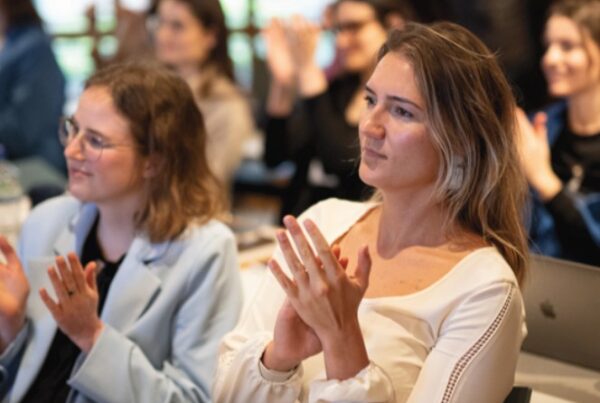
This year’s Europaeum Classics Colloquium, hosted by and organised in cooperation with the Institute for Advanced Studies at the University of Bologna, investigated the relationship between war and trauma in Antiquity. Specifically, it asked how contemporary ideas about trauma are relevant to the study of Antiquity but also what ancient discussions of warfare’s traumatic effects can be useful for understanding the complex range of emotions that warfare stimulates.
The Colloquium began with a visit to Bologna’s Museo Civico Archaeologico, one of Italy’s most important and impressive museums of classical antiquities. Under the expert guidance of archaeologist Anna Gamberini, students engaged with the many pieces from within its collections whose object histories were shaped by experiences of war. Later that day, Sergio Casali of the University of Rome II (Tor Vergata) gave a plenary opening lecture on the trauma of the Trojan War in Virgil’s Aeneid.
Our student delegates each presented on the relationships between war and trauma in their doctoral research. How we should understand, and therefore define, trauma was one recurring theme: is it momentary or enduring, specific, continuous, or episodic? How we recover it from literary texts was another: do we locate it in affective vocabularies (words) or in plots and narratives (deeds)? Where did ancient trauma occur – in public or private? – and how can we recover it faithfully from so great a chronological distance were other important questions engaged.
Rory Cox (University of St Andrews) gave a second keynote lecture, on the development of military ethics in Antiquity and their relationship to rules of modern warfare, and Antonio Ziosi (University of Bologna) and Diana Gonçalves (Catholic University of Portugal) presented in an ancient-modern dialogue. Antonio discussed how to recover an emotional history of war from ancient poetry and Diana how Game of Thrones serves as an allegory for the war against climate change and the traumatic imagination of the collapse to come.
The Europaeum is very grateful to Professor Francesco Citti of Bologna’s Classics Department along with Antonio Ziosi and Tommaso Richieri (University of Bologna) for co-organising this event.

Marianna Leszczyk, a doctoral student in Classics at the University of Oxford, describes her experience of the event:
“Truly representative of the spirit of curiosity and the joy of learning palpable in the historic spaces of the University of Bologna, the Europaeum Classics Colloquium was a highly enriching experience for me. Thanks to the presence of students from non-classical subjects such as Law or International Relations, the intersection between war and trauma became remarkably transhistorical and timeless, giving our joint endeavour of revisiting ancient texts the urgency of rethinking present issues and policies. The keynote lectures on the climate crisis reinforced this impression, ensuring that our discussions equally touched upon one of the biggest, if not the biggest, traumatic crisis of our time. Overall, I found all participants to be not just brilliant scholars, but also kind, empathetic, and socially engaged individuals who were a pleasure to debate and think with. I am grateful to the Europaeum for bringing us together in this little European community.”
Pablo Sanchéz Rodríguez, a doctoral student in Political Science at the Complutense University of Madrid describes his experience:
“The event has been tremendously enriching for those, like me, who were not fully familiar with Classics. Listening to the new Classics scholarship all over Europe to see the directions and intricacies of their work has been a very positive experience for me, and, after this, I will definitely try to integrate more of the Classics findings in my research. At the end of the day, European Politics is deeply rooted in our understanding of the Ancient World and some images are still used in political speeches. Going beyond the general knowledge about the Ancient World and discussing with Classics scientific specialists these connections with Political Science have been incredibly enlightening to integrate Classic Studies in other disciplines. Even more, many Classics students were interested in the work I was doing in International Relations, so I guess joint works may emerge in the future after this event, linking my area of studies with a Classics approach. Because of that, I think the broad topic “War and Trauma” was incredibly positive to include different perspectives and working with colleagues all over the network was an amazing experience.”



